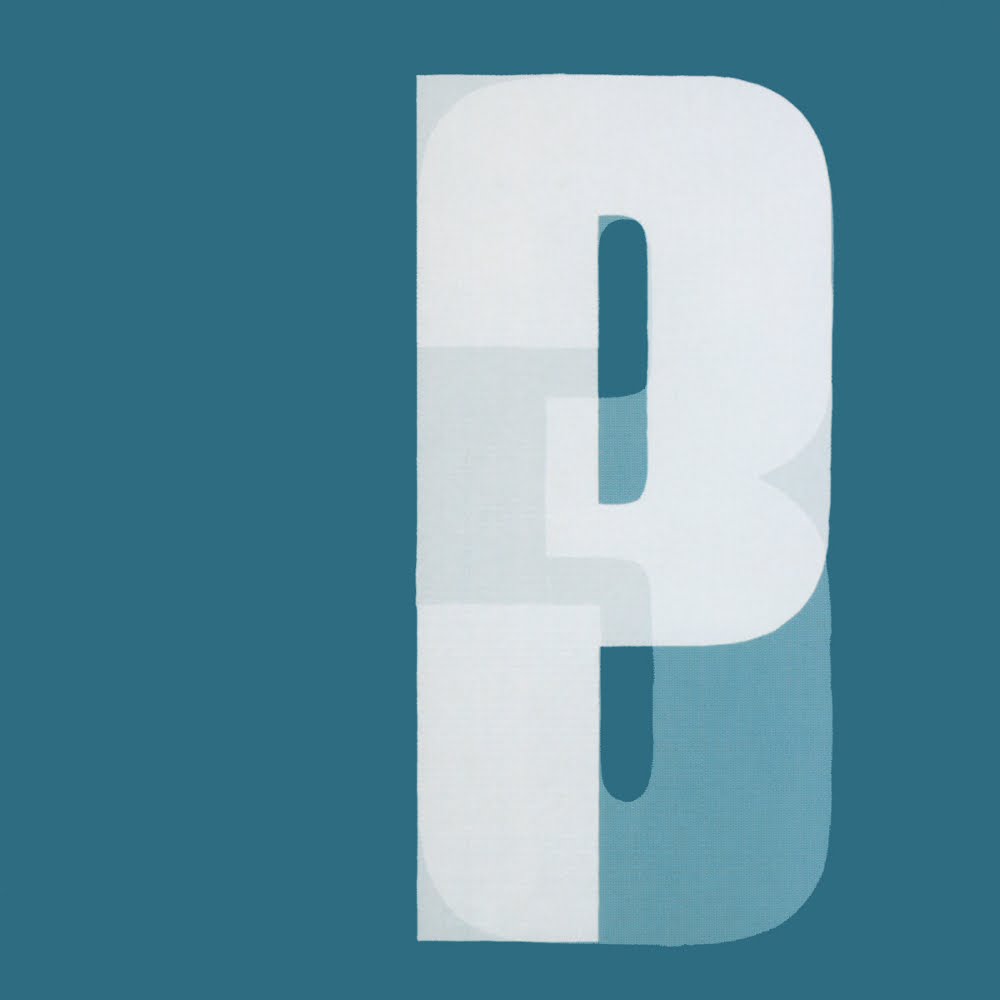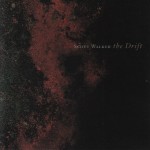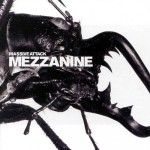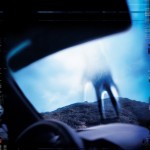Portishead : Third

Terrifying events tend to arrive in triplicate. Celebrity deaths, the spirits in Dickens’ A Christmas Carol…government forms. This prime number, the one that represents strikes and outs in baseball, the ‘magic number’ according to Schoolhouse Rock, and in turn, De La Soul, abounds with the latest release from Portishead. And when I say ‘latest release,’ that term carries heavy meaning. It’s been eleven years since the trio (aha!) last put out an album, their sophomore self-titled affair. That wait, I’m pleased to say, has been well worth it. Third, its title self-explanatory, is a revelation, albeit a somewhat delightfully frightening one. The first sounds heard on the album are taken from a Brazilian film, with the actor speaking in Portuguese, roughly translated as ‘beware the rule of three.’ Never have truer words been spoken.
As a child, I was at once awed, elated and petrified by the Disneyland attraction, The Haunted Mansion. Everything about it was captivating. The stretching room, the hanging body of the ‘host,’ the dancing specters in the ballroom, and most of all, the combo of the three hitchhiking ghosts and Madame Leota. I don’t think anything scared or thrilled me more than seeing the tagalong phantom in the Doom Buggy next to me, or the incredibly chilling voice of Little Leota intoning, “Come back…come baaaack…don’t forget your death certificate…” I mention this because Portishead’s Third brought back those same mixed feelings of terror and glee. The entire album plays like the soundtrack for some kind of noir horror film, or, yes, even a creepy Disneyland ride, with instrumentalists Geoff Barrow and Adrian Utley playing ‘ghost hosts.’ Chanteuse Beth Gibbons appears in the chilling role of Madame Leota, her voice alone enough to send shivers up your spine and make the hairs on the back of your neck stand up.
The opening breakneck rolling drums of “Silence” conjure images of a kind of sinister spy adventure, one in which James Bond battles the undead. Of course, were that movie to be made, a Guns n’ Roses cover of a Paul McCartney tune just wouldn’t cut it. Eerie strings cut through the drum progression, setting a tone of disquiet, despite the song’s title. Gibbons’ voice appears about halfway through the song, sounding disembodied and ethereal, evoking gothic images of Miss Havisham alone in her parlor with a wedding cake and her own tortured thoughts. And we feel just for a moment, with her bony hand outstretched and that gorgeously haunting voice, we might stay. But then, and sorry for the mixed metaphor, we’d end up like Danny Torrance in the Overlook Hotel, playing with the twins forever and ever and ever. But, the song ends as intensely as it began, with an abrupt stop, like the drop of the blade in the guillotine.
“Hunter” combines elements of the familiar dark cabaret jazz that highlights their previous releases with a worldlier swagger, as if with a touch Brazilian samba. It made me want to create a new genre for Portishead called “gothba,” but that sounded too much like a planet from Star Wars. “Nylon Smile” continues Gibbons’ self-flagellating lyrical bent while Barrow and Utley carry on with backwards loops and bending guitar notes that are so unsettling, they may cause you to continually look over your shoulder while wearing headphones. “The Rip” is easily one of the more beautiful songs Portishead has written. The song, spare in instrumentation at the outset and rich with Gibbons’ aching vocals, is reminiscent of Marianne Faithfull’s rendition of “As Tears Go By.” Of course, never being a group to do things straight up, we are inundated halfway through with ’80s era keyboards, similar to tracks from OMD. “Plastic” brings back the creepin’ willies from the opening track, with quick drum bursts and the rising and falling of what sounds like helicopter blades. But “Plastic” is also the one song that could be a direct link to the first two albums, especially songs like “It Could Be Sweet.”
One of more direct songs on the record, and that’s truly stretching, is “We Carry On,” a track whose menace is in its marching drum and intense building guitars. That centerpiece, one of the best and longest songs on the record, is undercut by its follow-up, the ukulele backed “Deep Water,” the shortest song on the album. Then we are treated to the debut single, “Machine Gun.” The repetitive assault of electronic sounds is fierce, to say the least. But again, Gibbons’ voice, along with her own background vocal accompaniment, lends an air of beauty to the beastly noise. It’s an incredible track, and a daring choice for a lead single as there is no real melody. Barrow and Utley end the track as if they are writing a new theme for an upcoming apocalyptic science-fiction sequel.
But it could be the last three (aha!) tracks where Third‘s superiority lies, which is really saying something given the strength of the rest of the album. “Small” begins all whispery and morose, like Nirvana’s “Something in the Way,” then, with the onset of a sawing cello, becomes tragically beautiful, before entering into some kind of ’60s freak-out, reminding us why they are the godparents of trip-hop. With this track, Portishead don’t so much `feed your head’ as make it explode. “Magic Doors” is the closest thing to a pop song on Third, with a melodic vocal line that recalls something from A-ha’s Hunting High and Low. However, Barrow and Utley inject the song with a desperation and sadness that take it out of the realm of pop and into their own category. The middle section `skronk’ is startling and I mean that in the best possibly way. The album comes to a close with “Threads,” a song that conveys such evil, especially with Gibbons’ closing warblings and the threatening bellows at the end, you think you might be in a Dario Argento film, about to be attacked from behind.
The last few seconds of “Threads” are the most frightening thing I’ve heard on record since the Cure’s “Subway Song.” And thus, Portishead end what they started, a truly terrifying third album. And even if you speak Portuguese, and understand the warning at the beginning of “Silence,” it’s not enough. Portishead have created a truly remarkable album with Third. Some people had to practically invent a new genre for Portishead in 1994, and the band has again defied classification with this collection of songs, three years in the making and eleven years in the ether. At turns it will have you humming sweet melodies and at others leave you in a complete state of unease. But, more than anything, it will be like one of those hitchhiking ghosts, tagging along, alongside you for eternity, and you’re loving every minute of it.
Label: Mercury/Island
Year: 2008
Similar Albums: Scott Walker – The Drift
Scott Walker – The Drift Massive Attack – Mezzanine
Massive Attack – Mezzanine Nine Inch Nails – Year Zero
Nine Inch Nails – Year Zero
Portishead : Third
Note: When you buy something through our affiliate links, Treble receives a commission. All albums we cover are chosen by our editors and contributors.

